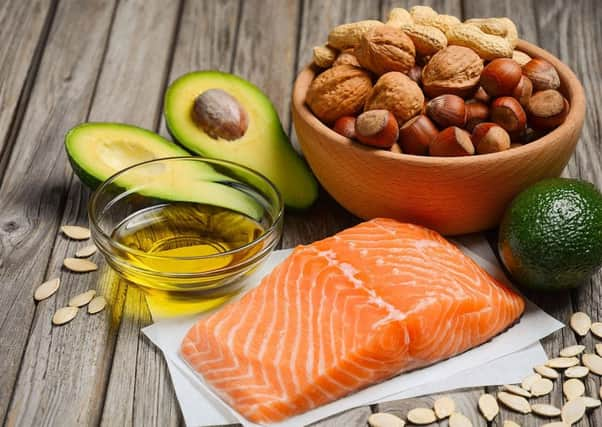Opinion: The good, the bad and the ugly in range of fats


In the 1980s we were told to eat a low-fat diet, as fat was ‘bad’ and contributed towards heart disease. Supermarket shelves were full of ‘low-fat’ products, however, we now know that added sugar replaced the fat to improve the taste. At the same time sugary cereals replaced eggs for breakfast, so yet more sugar ended up on our plates. This is what is now believed to have been a major contributing factor in the rise in chronic disease and obesity over the last 20/30 years, as recent medical research now reports that it’s sugar, not fat, that has played a greater role in damaging our health.
Why do we need fat? Well, fat is a good source of energy and essential fatty acids, which must be obtained through the diet, as the body is unable to produce them. It also helps with the absorption of the fat-soluble vitamins (A, D, E, K), keeps our cell membranes healthy, plays an important role in brain health, the nervous and immune systems, and hormone production.
Advertisement
Hide AdAdvertisement
Hide AdHowever, all fats are not equal. Some types are beneficial to our health and should be included in our everyday diets, but there are others that can be damaging so should be avoided.
The main types are:
Saturated fat – Solid at room temperature. Animal based sources include meat, butter, cheese and cream. Plant based sources include coconut and palm oil. It was previously thought that saturated fats increased risk of heart disease, however, a large meta-analysis by Cambridge University recently stated that there isn’t any evidence to support this. So, new advice is that it’s okay to enjoy them occasionally, but when choosing animal sources, ideally have organic, grass-fed, locally reared options.
Monounsaturated fat – Liquid at room temperature. Sources include olive oil, rapeseed oil, nuts and seeds, avocados and are generally classed as healthy fats. The Mediterranean diet includes lots of monounsaturated fats (as well as fish, fruit, vegetables and olive oils) and has been reported to support good health.
Polyunsaturated fat – Liquid at room temperature. Sources include vegetable oils, meat, fish, dairy, eggs, nuts and seeds. The essential fatty acids (omega-3 and omega-6) are classed as ‘good’ polyunsaturated fats.
Advertisement
Hide AdAdvertisement
Hide AdTrans fats – Largely artificial, made by heating unsaturated fats so they are chemically altered to turn them into solids in a process called hydrogenation. Found in margarines, cakes, pastries, biscuits, processed foods, ready meals, low-fat/diet foods and hydrogenated oils. Trans fats extend the shelf life of these products, but they are very detrimental to our health. Classed as ‘bad’ fats they should be avoided, as studies have implicated them in diabetes, heart disease, cancer and inflammation.
Healthy fats to eat daily…
l Coconut oil – for cooking
l Olive oil – for dressings
l Avocado
l Nuts
l Seeds
l Eggs
And in moderation (2-3 times a week)…
l Oily fish
l Pasture-fed red meat, poultry
l Organic dairy